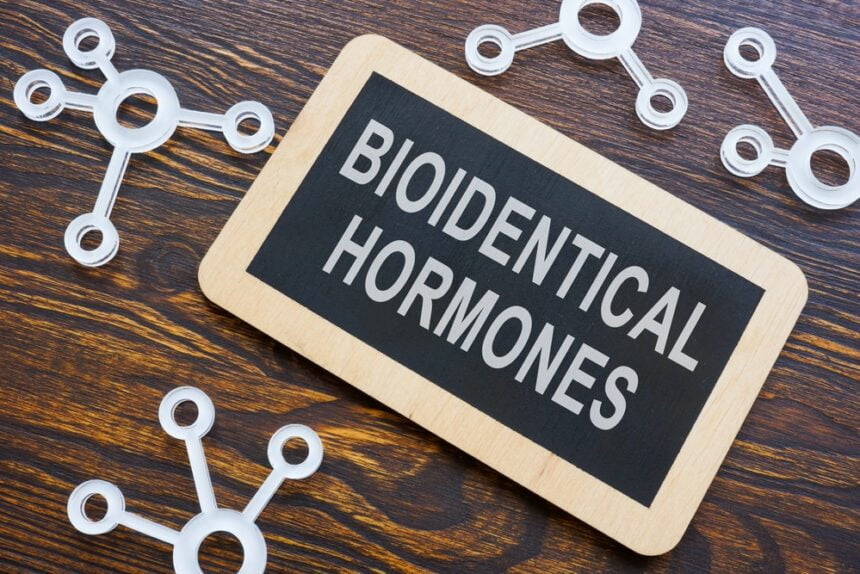Bioidentical hormones have emerged as a popular alternative to synthetic hormones in hormone replacement therapy. They are made from natural plant extracts and are created to be chemically identical to the hormones produced by the human body.
But what exactly are bioidentical hormone ingredients, and how are they manufactured? This article aims to answer these questions by providing an in-depth look into the ingredients and manufacturing process of bioidentical hormones.
What Are Bioidentical Hormones: How Are They Different from Synthetic Hormones?
As men and women age, their bodies undergo various changes, including hormonal fluctuations. Hormone imbalances may lead to a wide range of symptoms, including fatigue, weight gain, mood swings, and decreased libido, among others.
To address these issues, doctors may prescribe hormone replacement therapy (HRT), which involves the use of synthetic or Bioidentical Hormones.
Synthetic hormones are created in a laboratory and are not identical to the hormones produced by the human body. They are often used in traditional hormone replacement therapy and can be administered in various forms, including pills, patches, and creams.
However, synthetic hormones have been associated with an increased risk of breast cancer, stroke, and heart disease, among other health concerns.
Bioidentical hormones are made from plant sources, such as soy and yam. Their chemical structure is designed identically similar to the natural hormones produced by our body.
This means that they are more easily recognized and processed by the body, reducing the risk of negative side effects. Bioidentical hormones can also be customized for each patient based on their individual hormonal needs.
The Ingredients in Bioidentical Hormones: What Makes Them “Bioidentical”?
Bioidentical hormones are created from plant extracts that contain substances structurally similar to hormones produced by the human body. These hormones include estrogen, progesterone, and testosterone.
The plant extracts are processed in a laboratory to extract the active ingredients, which are then combined with other natural components to create a final product that is chemically identical to our bodily hormones.
One of the most commonly used plant extracts for bioidentical hormone production is soy. It contains isoflavones, which have been found to mimic estrogen in the human body.
Other plants commonly used for bioidentical hormone production include yam and wild Mexican yam. The active ingredient in these plants is diosgenin, which can be converted into progesterone in a laboratory setting.
The use of bioidentical hormones has been on the rise in recent years as many individuals seek alternatives to synthetic hormone replacement therapy. Bioidentical hormones are often marketed as safer than synthetic hormones, as they are derived from natural sources.
However, it is important to note that the quality and purity of bioidentical hormone products can vary as per manufacturers.
Benefits of Using Bioidentical Hormones
Bioidentical hormones are one of the most effective ways to replenish hormone deficiency in the human body. The following are some potential benefits of using bioidentical hormones.
- Better symptom relief: By opting for bioidentical hormone replacement therapy, individuals can effectively relieve hormone imbalance symptoms, such as hot flashes, mood swings, night sweats, and vaginal dryness.
- Enhanced energy levels: These hormones boost one’s energy levels, leading to a greater sense of vitality and well-being.
- Increased muscle mass: Bioidentical hormones help increase muscle mass and strength, particularly in men.
- Improved skin health: You can naturally improve your skin texture and reduce wrinkles with the use of bioidentical hormones. Thus, it recovers the lost glow on your face.
- Increased libido: These hormones can enhance sexual functions and libido in both men and women. With bioidentical hormones, the body can recover and re-synthesize the essential hormones to achieve a healthy sex life.
- Lowered risk of critical health issues: Hormone imbalances increase the risk of certain health ailments, such as osteoporosis, heart disease, and cognitive decline. By restoring the usual hormonal balance with bioidentical hormones, the susceptibility to these conditions are reduced.
- Improved insulin sensitivity: To improve insulin sensitivity and reduce the risk of type 2 diabetes, doctors often recommend bioidentical hormone therapy as a solution.
- Potential anti-aging effects: Bioidentical hormones render anti-aging effects by improving skin elasticity, reducing fine lines, and increasing bone density.
The Manufacturing Process: How Are Bioidentical Hormones Produced and Customized for Each Patient?
Bioidentical hormones are formulated through a precise data-backed medical process to cater to the needs of prescribed individuals.
The manufacturing process for bioidentical hormones involves compounding pharmacies, which specialize in creating customized medications based on individual patient needs.
Hormones act as messengers, traveling through the bloodstream and binding to specific receptors on cells to trigger a response. If a hormone has a slightly different molecular structure than the hormone it is meant to mimic, it may not bind as effectively to the body’s receptors.
This can lead to a reduced response or unwanted side effects. Thus, the procedure to create bioidentical hormones requires utter precision.
The process typically begins with the prescribing doctor performing a series of tests to determine the patient’s hormonal profile and identify any imbalances or deficiencies. This may involve blood or saliva tests, as well as a comprehensive medical history and physical exam.
Based on the results of these tests, the doctor will work with the compounding pharmacy to create a customized hormone formula that meets the patient’s specific needs.
The compounding pharmacy will then source the necessary ingredients, which may include plant-based as well as natural fillers or carriers such as oils or creams. The hormones are typically prepared in a sterile environment to ensure purity and quality.
The final product can be administered in a variety of forms, including capsules, creams, gels, and injections.
One of the key advantages of bioidentical hormone therapy is its flexibility. Because the hormones are customized for each patient, the dosage and frequency of administration can be adjusted to ensure optimal results.
This may be particularly important for patients with complex hormonal imbalances or those who have not responded well to traditional hormone replacement therapy.
Conclusion
Created using natural components, bioidentical hormones are relatively safer for humans to treat hormonal issues. They offer potential benefits over synthetic hormones but should only be used under medical supervision.







